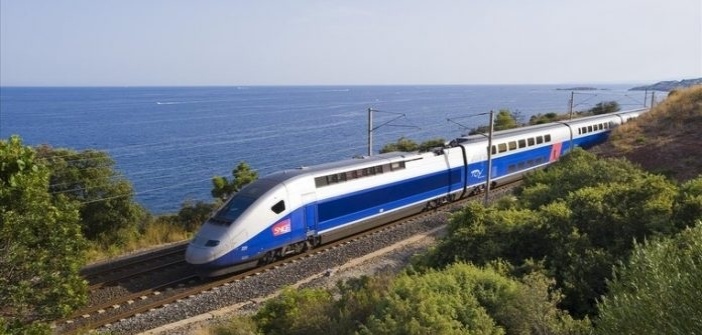Created in October 2017 by the Minister in charge of Transportation, Elisabeth BORNE, as part of the National Mobility Conference, the Infrastructure Orientation Council will submit at the end of January 2018 a report with financially sustainable proposals for planning the State’s investments in transport and mobility for the coming decade.
Before the submission of this report, the Provence-Alpes-Côte d’Azur Region and the Nice Côte d’Azur Metropolis wanted to invite the members of this council, chaired by Philippe DURON, with the aim of presenting to them the advantages of the high-performance railway connection project between Provence and the Côte d’Azur.
This meeting took place yesterday in Nice in the presence of the mayors of Nice, Cannes, and Antibes, who showed a united front.
For the Côte d’Azur, where the coastal line is the busiest in France (excluding Ile-de-France), the creation of a new line between Nice and Cannes/Grasse via Sophia Antipolis is the only solution to resolve the serious deficiencies of the railway service.
The LN PCA project follows the government’s guidelines and the National Mobility Conference’s roadmap for infrastructure over the next 15 years, promoting interregional and European mobility in a territory with strong economic and demographic growth.
It is an essential infrastructure to alleviate our congested road networks, improve urban connections, provide an alternative to “all cars,” and meet the ambitions of economic and ecological transition; especially in a region where tourist traffic demands efficient public transport.
All of which a simple modernization of the current railway line (the same since the 19th century) would not be able to achieve, as demonstrated by studies from SNCF Réseau.
The State must include the LN PCA in the priorities of the National Framework as demanded by economic stakeholders, gathered around the local Chambers of Commerce, who ask the Government to confirm the realization of the LN PCA and its schedule (Single Declaration of Public Utility by 2020 for a service launch by 2030).
“Not making this choice would be costly in terms of economic and environmental development. It is also essential that the State supports the search for sustainable budget resources and sets up a specific funding mission with an innovative setup,” they stated in a communiqué at the end of the proceedings.


